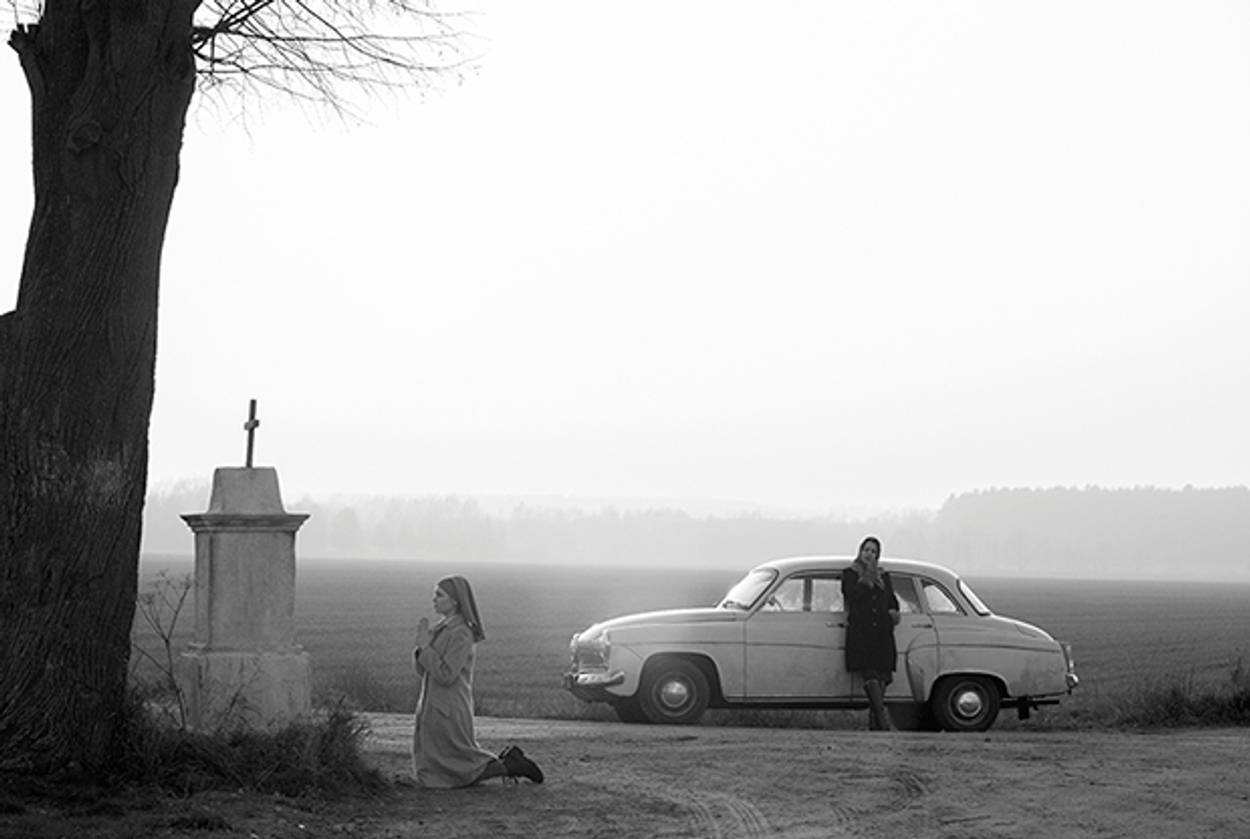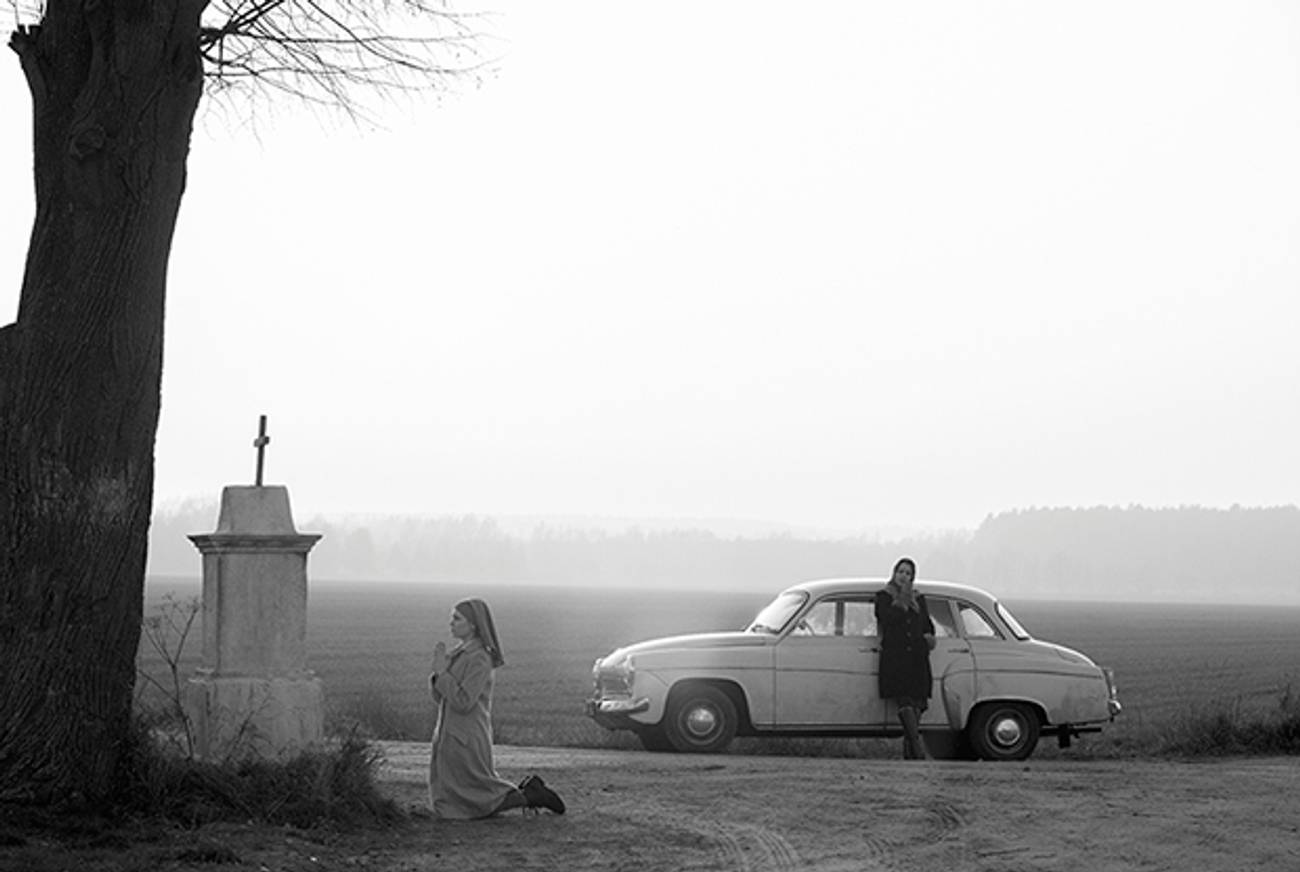Polish Film ‘Ida’ Shortlisted for Oscar
Pawel Pawlikowski’s bracing film up for Foreign Language Academy Award




Ida, the newest film by Polish director Pawel Pawlikowski, has been shortlisted for an Oscar in the Best Foreign Language Film category. The film tells the story of Ida, a 1960s Polish teenager just weeks away from taking her vows and becoming a nun. She is sent to meet her only living relative, a tough, grizzled aunt, who informs her that she’s Jewish, and her parents were killed during the Holocaust. It’s a lot to take on, and Pawlikowski, known for films like Last Resort (2000) and My Summer of Love (2004), manages deftly. J. Hoberman, writing about the film upon its April release, called it “bracing, beautifully wrought, and provocative.”
“Ida is thus a kind of investigatory road film in which, driving through rural Poland, the cloistered novice learns more about life’s cruelties and her country’s recent past than she would surely ever want to know—while her aunt, whose belief in her own secular faith has long since eroded, is forced to re-experience the trauma she would prefer had remained buried,” Hoberman wrote.
Also on the Oscars shortlist are eight other films, among them Andrey Zvyagintsev’s Leviathan (Russia), Ruben Östlund’s Force Majeure (Sweden), and Damián Szifrón’s Wild Tales (Argentina). The five top contenders will be announced Jan. 15; the 87th annual Academy Awards are scheduled for Feb. 22.
It’s hard not to compare Ida with another recent Polish film Aftermath, which also touches on postwar religious tensions in Poland, albeit more brusquely. Aftermath, which caused quite a stir in Poland when it was released two years ago, was reportedly based on Jan Gross’ 2001 book Neighbors, which depicted the mass killing of Jewish community of Jedwabne—not by the Nazis, but by the town’s Polish residents. The film, gritty and searing, depicted a postwar village upended when one resident pokes too deeply into his fellow villagers’ wartime secrets.
“But where Aftermath was something close to a horror film playing out in early-21st-century Poland,” Hoberman concluded, “Ida is distanced and reflective. Aftermath is designed to bruise, depicting anti-Semitism in the absence of Jews; Ida, which puts its Polish characters face to face with the Jewish ‘living remnant,’ is meant to haunt.”
Whether the film can haunt its way to an Oscar, though, remains to be seen.
Stephanie Butnick is chief strategy officer of Tablet Magazine, co-founder of Tablet Studios, and a host of the Unorthodox podcast.